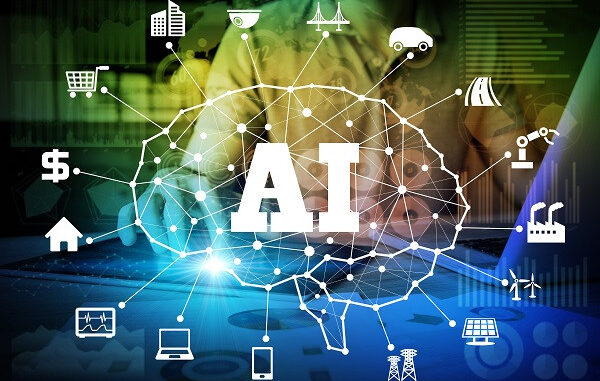
The rise of Artificial Intelligence (AI) is transforming the future of work in profound ways, presenting both opportunities and challenges. Here are some potential implications of AI on the future of work:
1. **Increased productivity**: AI can automate repetitive and mundane tasks, freeing up human workers to focus on more complex and creative tasks.









2. **Improved efficiency**: AI can optimize processes, reduce errors, and enhance decision-making, leading to better outcomes.
3. **New job creation**: While AI may displace some jobs, it will also create new ones, such as AI developer, data scientist, and AI ethicist.
4. **Enhanced collaboration**: AI-powered tools can facilitate collaboration, communication, and knowledge-sharing across teams and organizations.
5. **Upskilling and reskilling**: As AI automates certain tasks, workers will need to develop new skills to remain relevant, driving a shift towards lifelong learning.
**Negative impacts:**
1. **Job displacement**: AI may displace some jobs, particularly those that involve repetitive or routine tasks.
2. **Income inequality**: As AI increases productivity, it may exacerbate income inequality if the benefits are not shared fairly among workers.
3. **Job polarization**: AI may widen the gap between high-skilled and low-skilled jobs, making it difficult for workers without relevant skills to adapt.
4. **Bias and inequality in AI decision-making**: AI systems can perpetuate existing biases and inequalities if not designed with fairness and equity in mind.
5. **Dependence on technology**: The increasing reliance on AI may lead to a loss of human skills and judgment.
**Key sectors affected:**
1. **Manufacturing**: AI-powered robotics and machine learning are transforming production processes.
2. **Transportation**: Self-driving cars and trucks may disrupt traditional transportation industries.
3. **Healthcare**: AI is being used in medical diagnosis, patient care, and personalized medicine.
4. **Finance**: AI is changing the way financial transactions are processed and portfolios are managed.
5. **Education**: AI-powered adaptive learning systems are revolutionizing the way students learn.
**Recommendations for a future-proof workforce:**
1. **Upskill and reskill**: Invest in education and training programs that focus on developing skills in areas like data science, AI development, and human-AI collaboration.
2. **Emphasize human skills**: Develop skills that are unique to humans, such as creativity, empathy, and problem-solving.
3. **Foster a culture of lifelong learning**: Encourage workers to continuously update their skills and adapt to new technologies.
4. **Address bias and inequality**: Implement fair and inclusive AI systems that prioritize human values and well-being.
5. **Invest in education and retraining programs**: Support programs that help workers who have been displaced by automation transition to new roles.
Ultimately, the future of work will require a balanced approach that harnesses the benefits of AI while mitigating its negative impacts. By prioritizing human-centered design, education, and upskilling, we can ensure that the benefits of AI are shared by all.


Leave a Reply